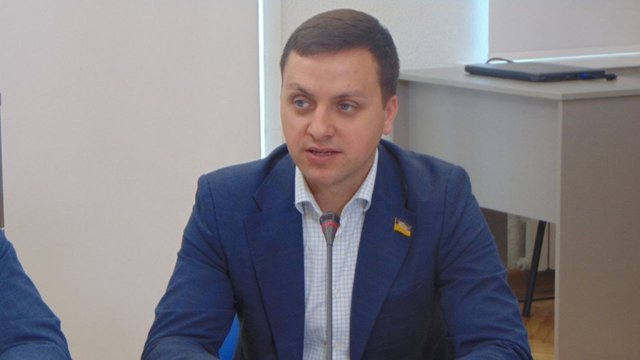Safety on Wheels, in the Sky, and at Sea: How One Law Can Change Everything

Volodymyr Kreidenko, Ukrainian MP, deputy chairman of the Committee on Transport
In Ukraine, the issue of transport safety is becoming increasingly important. War, economic challenges, and the need for integration into the European space—all these factors require Ukraine to have a clear and transparent system for investigating transport incidents. This concerns not only aviation or railways, but also maritime, road, and urban transport. After all, every accident or incident means not only human casualties and material losses but also reputational damage to the state. Unfortunately, Ukraine still lacks an independent body that would professionally handle such investigations. That is precisely why Draft Law No. 13674-1 “On the National Bureau of Transport Investigations” was introduced.
Its main idea is to make transport incident investigations systematic, transparent, and independent. The task of this body is not to look for culprits and impose punishment but, first and foremost, to identify causes and prevent new tragedies. This is a European approach, fundamentally different from the Soviet logic of “finding someone guilty at any cost.” Safety is achieved not through punishment, but through analysis and elimination of risks.
The need for such a law is dictated not only by common sense but also by Ukraine’s international obligations. The EU–Ukraine Association Agreement, the Chicago Convention on International Civil Aviation, and the Common Aviation Area Agreement—all these documents directly require our country to establish a permanent body for the investigation of accidents and incidents. European directives and regulations set uniform standards for all EU member states. If Ukraine seeks integration into the European transport space, it must comply with these standards.
In practice, however, we see a very different picture today. Various laws contain fragmented provisions on investigations, but they do not form a coherent system. There is no independent institution dedicated solely to this task. As a result, investigations are often delayed, and their findings remain inaccessible. This affects not only safety but also the country’s international reputation. When catastrophes occur—such as the downing of Malaysia Airlines Flight MH17 or the crash of a UIA plane near Tehran—Ukraine finds itself limited in its ability to participate fully in international investigations.
EU countries have long understood that only an independent body can conduct investigations objectively and earn trust. Such a body is not subordinate to state regulators or to companies managing infrastructure or providing transportation. It has no conflict of interest and, therefore, can speak the truth even when it is uncomfortable for authorities or businesses. This principle underpins the Draft Law “On the National Bureau of Transport Investigations.”
The document proposes reorganizing the already existing National Bureau, which currently investigates aviation accidents, and transforming it into a universal body for all modes of transport. This way, the state will have a single center of expertise and accountability. The Bureau will have the authority to investigate transport incidents, safeguard investigation materials, prepare recommendations to prevent new tragedies, and provide information to the public and international partners. The draft law also sets requirements for the head of the institution, guarantees its independence and accountability, and includes amendments to basic transport laws to create a unified legal framework.
It is important to note that this draft law differs from the government’s draft law “On the National Bureau of Investigation of Transport Accidents,” registered by the Ukrainian Cabinet of Ministers in August 2025. That proposal envisages abolishing the current Bureau and reducing staff in the State Transport Safety Service. In contrast, Draft Law No. 13674-1 “On the National Bureau of Transport Investigations” follows the path of optimization—it does not dismantle what already exists but rather develops and improves it. Moreover, it takes into account a wider range of international documents, including guidance from the International Civil Aviation Organization (ICAO). This makes it more systematic and closer to real standards.
Another advantage of Draft Law No. 13674-1 is that it does not impose an additional burden on the budget. The Bureau will be created on the basis of the existing institution. This is reorganization, not new expenses. In the current circumstances, this is a crucial argument: the state will receive a modern mechanism for ensuring transport safety without additional financial risks.
So, what will change after the law is adopted? First of all, investigations will become more transparent and effective. This will allow systemic problems to be identified and addressed more quickly. Trust in state institutions will grow—both within society and among international partners. Ukraine will fulfill its international obligations and, therefore, strengthen its position in negotiations with the EU. Businesses will gain clearer rules, and citizens—greater safety.
In the end, this is not only about transport policy but also about the country’s strategic direction. Transport safety is part of national security. It is a matter of trust between the state and its citizens, and between Ukraine and its international partners. Adoption of Draft Law No. 13674-1 “On the National Bureau of Transport Investigations” will demonstrate that Ukraine is ready not only to declare European aspirations but also to put them into practice.
The true essence of this draft law lies in a shift of approach: from a culture of punishment to a culture of prevention. And it is precisely this shift that can save thousands of lives in the future.



